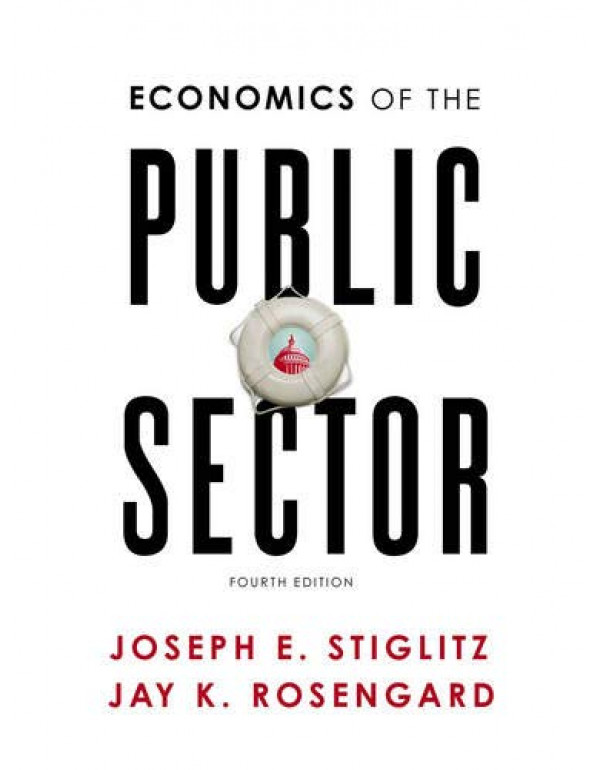Unveiling the Complexities of Government Intervention: A Guide to Public Sector Economics (4th Edition)
Delving into the critical role of government in a modern economy.
The long-awaited revision of the classic text, "Economics of the Public Sector", offers a comprehensive and accessible exploration of the key issues surrounding government intervention in the modern world. Authored by Nobel laureate Joseph E. Stiglitz and co-author Jay K. Rosengard, this fourth edition builds upon their extensive experience in policy advising to equip students, policymakers, and the general public with a deeper understanding of the public sector's crucial role in contemporary society.
Geared Towards:
- Economics students: Establish a solid foundation in public sector economics and its application to contemporary issues.
- Policymakers: Develop informed and evidence-based policies aimed at promoting economic efficiency and societal well-being.
- Individuals interested in public policy: Explore the economic rationale behind government intervention and its impact across various sectors.
Key Focus Areas:
- The Evolving Role of Government: Uncover the economic justifications for government involvement, including addressing market failures, externalities, and the provision of public goods.
- Crafting and Analyzing Policies: Delve into the economic tools and frameworks used to analyze and evaluate the effectiveness of public policies.
- Addressing Contemporary Challenges: Examine critical issues facing the public sector today, such as climate change, income inequality, and the complexities of globalization.
- Understanding Global Public Goods: Grasp the challenges and opportunities surrounding the provision of public goods and services with global implications.
Content Highlights:
- Market Failures and Public Intervention: Explore various market failures such as externalities, public goods, and imperfect competition, and understand the economic rationale for government involvement to address these issues.
- Taxation and Public Finance: Unpack the principles of taxation, including efficiency, equity, and administrative feasibility, and analyze various tax systems.
- Cost-Benefit Analysis: Master the framework for evaluating the economic benefits and costs of potential government interventions to ensure optimal decision-making.
- Public Choice Theory: Explore the potential influence of special interests and political considerations on government policies and how this can impact their effectiveness.
Key Takeaways:
- Gain a comprehensive understanding of the economic rationale for government intervention in various spheres.
- Develop skills for analyzing and evaluating the effectiveness of public policies.
- Explore the economic challenges and opportunities facing the public sector in the contemporary world.
- Appreciate the complexities and considerations involved in providing public goods on a global scale.
Strengths:
- Comprehensive and up-to-date: Offers a thorough exploration of fundamental concepts and contemporary issues relevant to the public sector.
- Nobel Laureate's Perspective: Provides valuable insights and analysis from Joseph E. Stiglitz, a renowned economist.
- Focus on Policy Analysis: Equips readers with the tools to critically evaluate the effectiveness of government interventions.
- Global Perspective: Incorporates discussions on global public goods and their economic implications.
